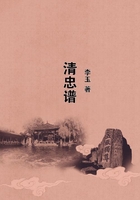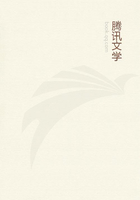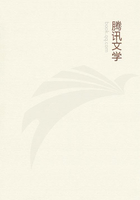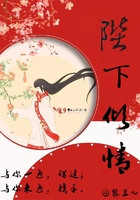While acknowledging the importance of particular facts as samples of higher truths, he is to take a broad and general view of humanity. He is to deal with the whole race and with the world, not with particular tribes or separate countries. He is to bear in mind that the world is really an organism wherein no one part can be moved without the others being affected also. He is to distinguish between cause and occasion, between the influence of general laws and particular fancies, and he is to remember that the greatest lessons of the world are contained in history and that it is the historian's duty to manifest them so as to save nations from following those unwise policies which always lead to dishonour and ruin, and to teach individuals to apprehend by the intellectual culture of history those truths which else they would have to learn in the bitter school of experience, Now, as regards his theory of the necessity of the historian's being contemporary with the events he describes, so far as the historian is a mere narrator the remark is undoubtedly true. But to appreciate the harmony and rational position of the facts of a great epoch, to discover its laws, the causes which produced it and the effects which it generates, the scene must be viewed from a certain height and distance to be completely apprehended. Athoroughly contemporary historian such as Lord Clarendon or Thucydides is in reality part of the history he criticises; and, in the case of such contemporary historians as Fabius and Philistus, Polybius in compelled to acknowledge that they are misled by patriotic and other considerations. Against Polybius himself no such accusation can be made. He indeed of all men is able, as from some lofty tower, to discern the whole tendency of the ancient world, the triumph of Roman institutions and of Greek thought which is the last message of the old world and, in a more spiritual sense, has become the Gospel of the new.
One thing indeed he did not see, or if he saw it, he thought but little of it - how from the East there was spreading over the world, as a wave spreads, a spiritual inroad of new religions from the time when the Pessinuntine mother of the gods, a shapeless mass of stone, was brought to the eternal city by her holiest citizen, to the day when the ship CASTOR AND POLLUX stood in at Puteoli, and St. Paul turned his face towards martyrdom and victory at Rome.
Polybius was able to predict, from his knowledge of the causes of revolutions and the tendencies of the various forms of governments, the uprising of that democratic tone of thought which, as soon as a seed is sown in the murder of the Gracchi and the exile of Marius, culminated as all democratic movements do culminate, in the supreme authority of one man, the lordship of the world under the world's rightful lord, Caius Julius Caesar. This, indeed, he saw in no uncertain way. But the turning of all men's hearts to the East, the first glimmering of that splendid dawn which broke over the hills of Galilee and flooded the earth like wine, was hidden from his eyes.
There are many points in the description of the ideal historian which one may compare to the picture which Plato has given us of the ideal philosopher. They are both 'spectators of all time and all existence.' Nothing is contemptible in their eyes, for all things have a meaning, and they both walk in august reasonableness before all men, conscious of the workings of God yet free from all terror of mendicant priest or vagrant miracle-worker. But the parallel ends here. For the one stands aloof from the world-storm of sleet and hail, his eyes fixed on distant and sunlit heights, loving knowledge for the sake of knowledge and wisdom for the joy of wisdom, while the other is an eager actor in the world ever seeking to apply his knowledge to useful things. Both equally desire truth, but the one because of its utility, the other for its beauty. The historian regards it as the rational principle of all true history, and no more. To the other it comes as an all-pervading and mystic enthusiasm, 'like the desire of strong wine, the craving of ambition, the passionate love of what is beautiful.'
Still, though we miss in the historian those higher and more spiritual qualities which the philosopher of the Academe alone of all men possessed, we must not blind ourselves to the merits of that great rationalist who seems to have anticipated the very latest words of modern science. Nor yet is he to be regarded merely in the narrow light in which he is estimated by most modern critics, as the explicit champion of rationalism and nothing more.
For he is connected with another idea, the course of which is as the course of that great river of his native Arcadia which, springing from some arid and sun-bleached rock, gathers strength and beauty as it flows till it reaches the asphodel meadows of Olympia and the light and laughter of Ionian waters.
For in him we can discern the first notes of that great cult of the seven-hilled city which made Virgil write his epic and Livy his history, which found in Dante its highest exponent, which dreamed of an Empire where the Emperor would care for the bodies and the Pope for the souls of men, and so has passed into the conception of God's spiritual empire and the universal brotherhood of man and widened into the huge ocean of universal thought as the Peneus loses itself in the sea.
Polybius is the last scientific historian of Greece. The writer who seems fittingly to complete the progress of thought is a writer of biographies only. I will not here touch on Plutarch's employment of the inductive method as shown in his constant use of inscription and statue, of public document and building and the like, because it involves no new method. It is his attitude towards miracles of which I desire to treat.















